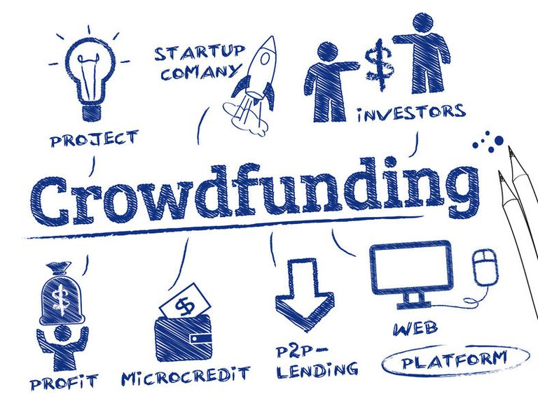 Crowdfunding is the process of raising small amounts of funds from a large number of people, primarily online, via social media and crowdfunding platforms like Kickstarter and GoFundMe. A recent example is Celeste Barber’s bushfire fundraising campaign on Facebook, which became worldwide news when it raised more than $51 million in a matter of a few weeks.
Crowdfunding is the process of raising small amounts of funds from a large number of people, primarily online, via social media and crowdfunding platforms like Kickstarter and GoFundMe. A recent example is Celeste Barber’s bushfire fundraising campaign on Facebook, which became worldwide news when it raised more than $51 million in a matter of a few weeks.
As crowdfunding has gained substantial popularity in recent years, it’s important to understand the implications for both the people raising the funds (referred to as “Promoters”) and the people contributing funds (referred to as “Contributors”).
The two main types of crowdfunding are donation-based and reward-based campaigns.
In donation-based crowdfunding, Contributors make donations to the project without receiving anything in return. Generally, these are fund-raisers for charities or for private causes (eg. a family seeking donations to help fund a medical procedure for a child; or in more frivolous cases, to fund a holiday or honeymoon).
On the other hand, in reward-based crowdfunding, the Promoter provides a reward to funders in return for their payment, typically in the form of a product or service offered by the Promoter. For example, Contributors may receive a book, app, record etc for the capital they put in to finance the production of the product.
Another type of crowdfunding is equity-based crowdfunding, where a company gives equity in exchange for the funds contributed. This type of crowdfunding is less common in Australia as there are various restrictions placed on both the company and investors.
Implications for the Promoter – Are the funds received assessable income?
As the Promoter of a campaign, whether the money you receive is taxable depends on nature of the arrangement, the taxpayer’s role in it and their circumstances.
Generally, if the campaign is related to furthering your business or is part of a profit-making plan, the funds received would be assessable income. Where amounts received are assessable income, any costs incurred in the process of gaining or producing that income may be allowable deductions, providing the taxpayer has the appropriate records to substantiate any claims.
For example, a Promoter has an existing business and he seeks additional funds through crowding platform to help introduce a new product line. A production line is built using the funds raised and the Contributors will receive a new product as reward if the crowdfunding reaches its target. As the Promoter is carrying on a business of selling this and other products, the funds will be ordinary income and a tax deduction will arise for the cost of manufacturing and selling the product.
Implications for the Contributor – Are amounts contributed deductible?
The tax consequences of contributions made to crowdfunding campaigns will depend on the nature of the campaign as well as the Contributor’s specific circumstances.
Where a contribution is made to a campaign that is classified as reward-based crowdfunding, whether the contributions are deductible will depend on the purpose for which the Contributor has acquired the goods or services. If the Contributor is not carrying on a business, the goods or services acquired will be considered purely private in nature and the contributions will not be deductible. However, if the Contributor is carrying on a business and the goods or services are used in the carrying on of that business, the cost would be treated as a normal business expense and may be deductible.
Where contributions are made to donation-based crowdfunding campaigns, the Contributor needs to determine whether the underlying donation has been made to a deductible gift recipient (DGR). For example:
- A Promoter is participating in a fun-run and creates a campaign to raise funds for Cancer Council NSW, which is a DGR. As the underlying donation is to a DGR, the contribution by the Contributor is deductible as a donation.
- A Promoter has a disabled child and creates a campaign to raise funds for the child’s medication or equipment needed. The Promoter has not registered as a charity with DGR status. Any contributions will not be deductible to the Contributor as they are not donations to a DGR.
Record Keeping
If you make contributions to a crowdfunding campaign, you need to keep documentation that shows:
- When the contribution was made;
- The amount of the contribution;
- What campaign the contribution was made to;
- If the campaign was raising funds for charity, the name of the end recipient so that their DGR status can be identified;
- If a reward-based campaign, details of the goods or services received in return for the contribution, and the purpose of acquiring those goods or services.
If running a crowdfunding campaign as a Promoter, you need to keep records of the purpose of the campaign (particularly whether it is for a profit making purpose or activities conducted in a business-like manner) as well as records of all contributions received and any costs incurred in raising the funds.










Sorry, comments are closed for this post.